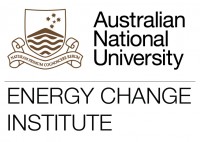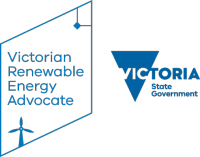About the Forum
The South Australia blackout last September, though triggered by an extreme and rare weather condition, served as an indication of a challenging future ahead for Australia’s energy network. As power interruption due to extreme weather conditions are occurring at an alarming frequency and Finkel Review indicates that Australia is falling behind its energy target, it is hard to deny that Australia is in desperate need for a thorough energy transformation.
To apprehend Australia’s dire needs from its current energy system condition, challenges and changes that lies ahead, Clariden Global is proud to present Australia Energy Policy Forum: Improving Australia’s Energy Infrastructure Reliability and Stability this June 2017.
With a respectable line-up of speakers comprising regulatory officials from the state and federal government, local and international experts from energy think tanks and decision makers from big industry players, this forum provides an unprecedented 360-degree discussion platform to assist Australia’s energy transition. Coming to the event, you will have the chance to understand potential causes of the South Australia blackout, to ponder deep into the current energy problems and identify the areas in Australia where energy policies and infrastructure improvements are required. The forum is an opportunity to discuss Finkel Review’s findings and understand its implications in the foreseeable future of the industry. Leverage on our speakers’ unique expertise and envision appropriate policy framework and latest energy technologies to help Australia meet Paris Agreement commitment while ensuring energy security is in the process.
Join our discussion this June and stay prepared for a challenging and exciting future of Australia energy market!
Mark 14 – 16 June 2017 in your calendar now!
Why Join This Conference
6 Powerful Reasons to Attend Australia Energy Policy Forum: Improving Australia’s Energy Infrastructure Reliability and Stability
- Learn from past energy crisis to improve Australia’s national energy infrastructure and policies
- Align leadership and support from both the state and federal level to establish a unified energy direction for the future
- Leverage on the combined strength of public and private sector to facilitate energy transition
- Establish a fair market system to better regulate energy supply and demand
- Utilize the latest energy technologies to stabilize and optimize Australia’s changing energy system
- Adopt best practices from successful energy infrastructure and policies around the world
The Forum at a Glance
DAY 1: Wednesday, 14 June 2017
- Identify underlying causes of South Australia blackout
- Rethink Australia’s Future Energy Direction
- Discover areas for improvement and prevent future energy crisis
- Explore appropriate policy frameworks to meet Australia’s international commitment while ensuring energy security
- Panel Discussion: Finkel Review’s Findings and Where is Australia Energy Policy Heading from Here?
DAY 2: Thursday, 15 June 2017
- Case Study: Lessons from Germany: The Keys to a Stable Renewable Energy System
- Redesigning Australia’s Credible Contingency Planning for Energy
- Evaluate and determine routes to ensure affordability, reliability, and reduce carbon emissions
- Unveil technology solutions to stabilize national energy grid
Companies Expected at the Forum
- Alinta Energy
- Department of Environment and Energy
- Australia Enery Regulator
- CSIRO
- AGL Energy
- Origin Energy
- Australia Energy Market Operator (AEMO)
- AusNet
- Hydro-Tasmania
- Horizon Power
- Snowy Hydro
- Energy Australia
- ERM Power
- Pacific Hydro
- Click Energy
- Ecogen Energy
- Power and Water Corporation
- Green Rock Energy
- Synergy
- Verve Energy
- Western Power Corporation
- Integral Energy
- CS Energy
- Australian Energy Market Commission
- COAG Energy Council
- Australian Renewable Energy Agency
- Australian Research Council
- Energy Efficiency Council
- Energy Policy Institute of Australia

































